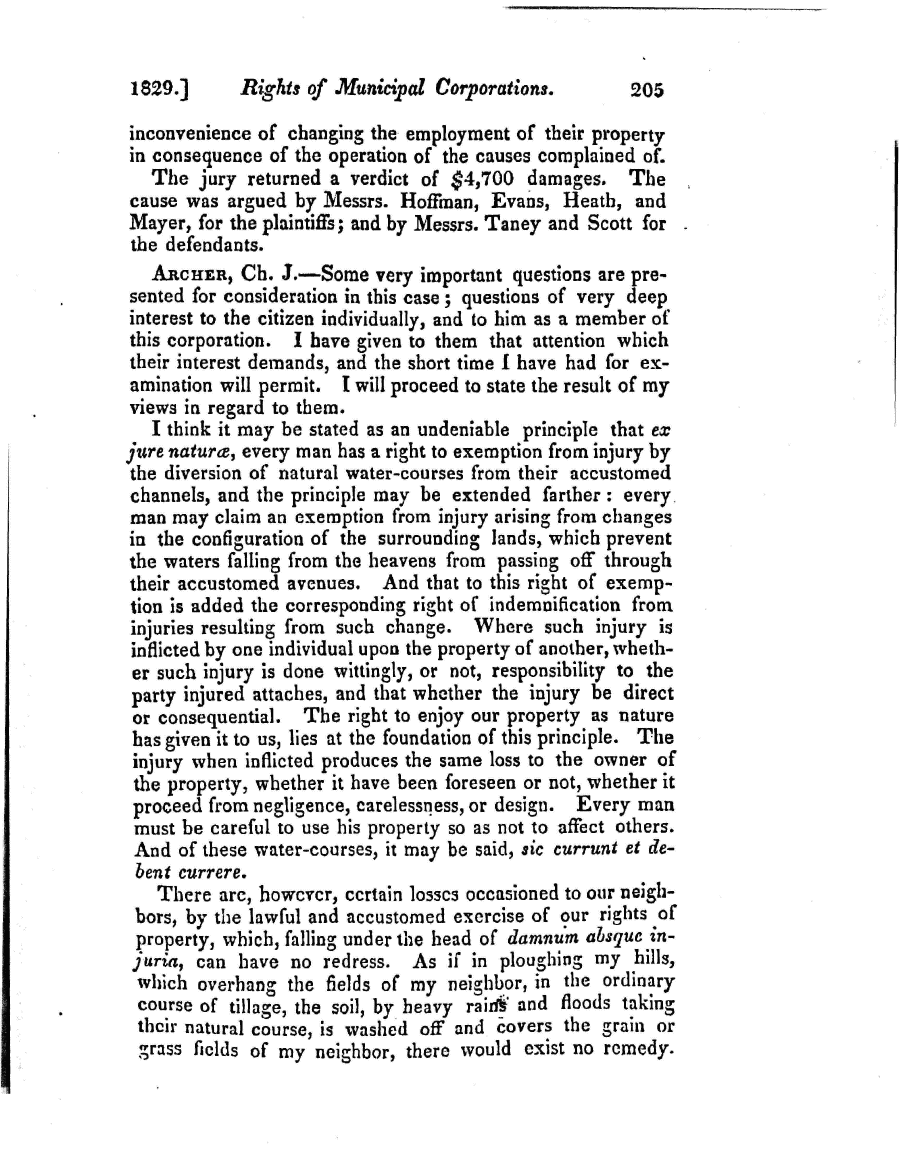|
1829.] Rights of Municipal Corporations. 205
inconvenience of changing the employment of their property
in consequence of the operation of the causes complained of.
The jury returned a verdict of §4,700 damages. The
cause was argued by Messrs. Hoffinan, Evans, Heath, and
Mayer, for the plaintiffs; and by Messrs. Taney and Scott for
the defendants.
ARCHER, Ch, J.—Some very important questions are pre-
sented for consideration in this case ; questions of very deep
interest to the citizen individually, and to him as a member of
this corporation. I have given to them that attention which
their interest demands, and the short time I have had for ex-
amination will permit. I will proceed to state the result of my
views in regard to them.
I think it may be stated as an undeniable principle that ex
jure natura, every man has a right to exemption from injury by
the diversion of natural water-courses from their accustomed
channels, and the principle may be extended farther: every
man may claim an exemption from injury arising from changes
in the configuration of the surrounding lands, which prevent
the waters falling from the heavens from passing off through
their accustomed avenues. And that to this right of exemp-
tion is added the corresponding right of indemnification from
injuries resulting from such change. Where such injury is
inflicted by one individual upon the property of another, wheth-
er such injury is done wittingly, or not, responsibility to the
party injured attaches, and that whether the injury be direct
or consequential. The right to enjoy our property as nature
has given it to us, lies at the foundation of this principle. The
injury when inflicted produces the same loss to the owner of
the property, whether it have been foreseen or not, whether it
proceed from negligence, carelessness, or design. Every man
must be careful to use his property so as not to affect others.
And of these water-courses, it may be said, sic currunt et de-
bent currere.
There arc, however, certain losses occasioned to our neigh-
bors, by the lawful and accustomed exercise of our rights of
property, which, falling under the head of damnum alsquc in-
juria, can have no redress. As if in ploughing my hills,
which overhang the fields of my neighbor, in the ordinary
course of tillage, the soil, by heavy rairfis and floods taking
their natural course, is washed off and covers the grain or
grass fields of my neighbor, there would exist no remedy.
|

